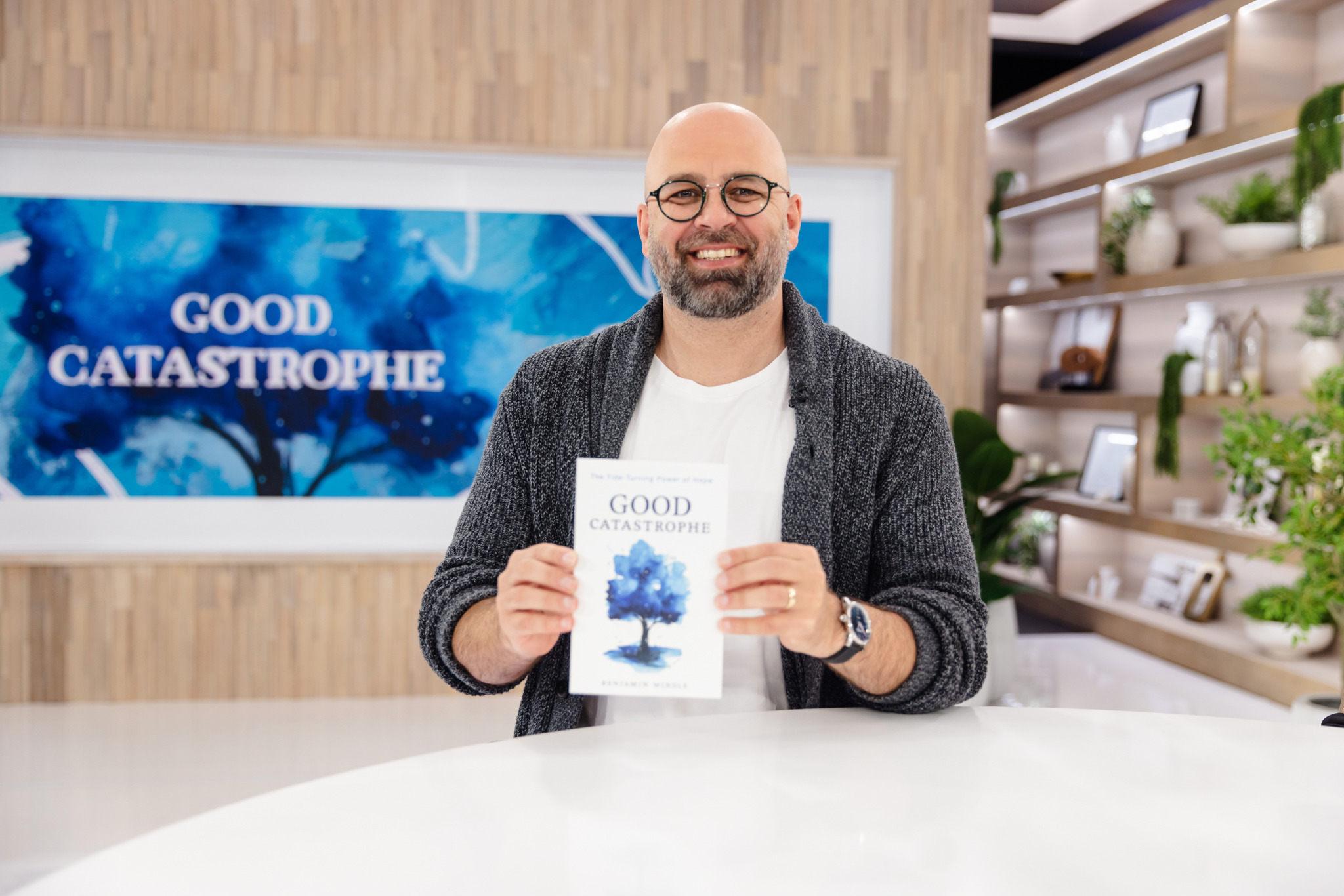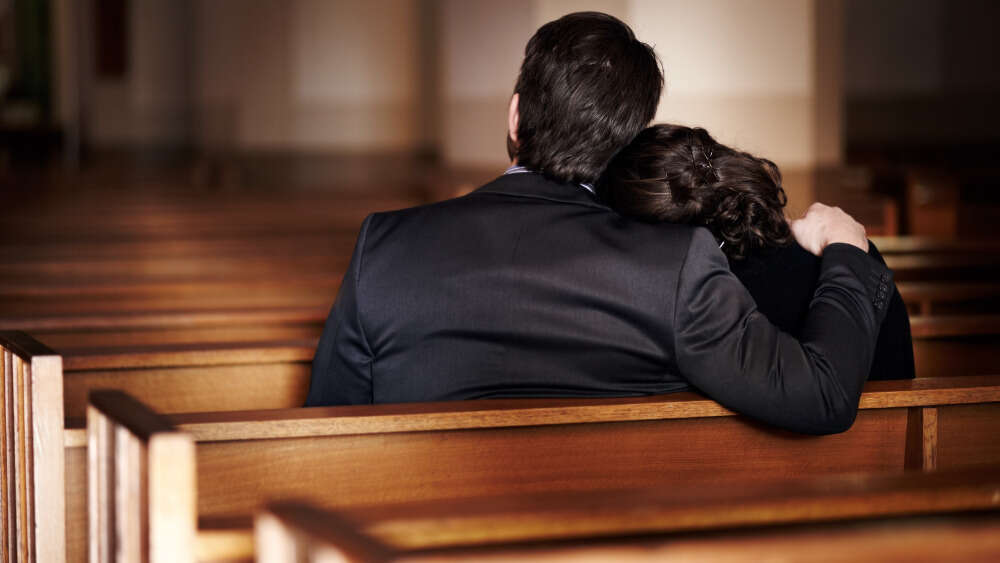Where is God in our pain?
Why we need to rediscover a new gritty version of hope in a complex world
“There’s been a dog attack. Call an ambulance.”
Even now, writing those words sucks the air out of my lungs. I can still feel the trauma surging through my nervous system.
My wife, Cindi, could barely speak as she walked into the front room of our house, clutching our youngest son in her arms. Her face was pale and had a look of complete terror on it.
A neighbor’s unrestrained Rottweiler had violently mauled our seven-year-old son.
The little guy hadn’t stood a chance against the beast. It had taken him by his neck and face. It had left him like a rag doll on the ground.
The damage took my breath away. The large laceration to the neck was clearly life-threatening. My son looked at me with panicked eyes and said, “Daddy, is this it?”
God, help me.
Help my son. If someone needs to go, please take me. I’ll do anything—but just save my son.
This can’t be how it ends.
As my youngest son was rushed to hospital in the back of an ambulance, I knelt with my other two sons, held hands, and prayed that God would preserve his life.
My mind flashes back to the faces of the first responders. Their grave expressions. It’s not good when you see fear in the eyes of the medical professionals. A wound of that magnitude along the neck could mean anything. And what would I know? I’m not a doctor. I just knew it was bad. Really bad. My body was in shock, and everything slowed down as stress chemicals surged through me.
As my youngest son was rushed to hospital in the back of an ambulance, I knelt with my other two sons, held hands, and prayed that God would preserve his life. Pretty much everything else is a blur. As soon as other family members arrived, I rushed to the hospital to join my wife and son.
After a night in the emergency ward, we finally got a report from the doctors. They looked for three kinds of damage with a wound like this. Tendons. Nerves. Arteries. The discovery? This attack miraculously missed all three. Yes, there’s a scar and trauma, but the teeth were a millimetre off something infinitely more devastating.
Even today, I shudder thinking about this incident. The fragility of life assaults my mind.
I’m a father. I am meant to protect. But I couldn’t protect against something I didn’t see coming. What am I supposed to do? Live my life in constant anxiety, trying to anticipate any impending threat to my family? I’ve tried that, and a quick tip – that doesn’t help anyone.
How can I live knowing that, at any time, something completely random can walk into my life and stab my soul with a dagger from behind?
I’ve had so many questions since that day. Why didn’t God cause the dog to be restrained? Why weren’t we out of town? I think of about one hundred what-if variables that would lead to my son not being savaged. How can I live knowing that, at any time, something completely random can walk into my life and stab my soul with a dagger from behind? I guess that’s the same circular vortex of thinking we all do when trying to make sense of the unthinkable.
My heart aches to think about this dog attack and my son. I mean, it really aches. I hate to think of the what-ifs. I hate that my wife had to witness it and try to pull the dog off. I hate remembering the look in my son’s eyes when he looked up in fear for his life.
I hate the pain.
Physically, my little boy has made a truly inspiring recovery in the years since this attack. In fact, within the trauma, something sweet has developed.
I smile at his bravery when he went back to school and answered all the questions from his friends.
I smile at his resilience.
I smile at his continued love of dogs.
If I see the existence of pain as a conflict to hope, then I’m building my life on shallow sand.
I’ve learned an important lesson about life and faith: God doesn’t remove pain from our lives. He doesn’t guard against its intrusion. I guess He could, but He doesn’t. And for the life of me, I don’t know why. Yes, I can give you all the explanations I was raised with about God – free will, eternal perspective, omniscient vs. finite reasoning. I mean, there are lots of explanations, and they are salves to the wounds life brings us. But the wounds still exist. Emotional devastation can hit us at any moment.
If I see the existence of pain as a conflict to hope, then I’m building my life on shallow sand. It may sound less confident, less full of faith, and less inspiring to actually admit to my human frailty. But this is where I’ve discovered something that is both counterintuitive and remarkable about hope.
I’ve had to confront some crucial questions.
How can life and the people we love be so fragile?
How can I stop myself from being overcome with feelings of dread or anxiety when I live with an awareness that everything that is most precious to me is outside of my ability to control or protect?
How can I handle the complexity of life, mental health, and the challenge of raising my three sons with my wife?
I think somewhere in an answer to this question needs to be a rediscovery of hope. In fact, I’m convinced of it. But in order to truly unleash hope in life’s hardest fights, we need to redefine what it means.
We need hope – but we need a hope that is robust enough to speak to real life. And cancer. And grief. And trauma. And doubt. And heartache. We need a song that can be sung in the breathless shadows that tells us life is beautiful.
Something’s broken, not just in how we process pain but in the fundamental way we see it and approach it.
Perhaps hardship and hope together can do something for us that a problem-free life never could.
And if we don’t stop running from our problems, and if we don’t start inviting hope into our shadows, we will miss out on one of the great transformative forces in our life.
It’s human nature to avoid pain and try to eliminate problems, but there is a growing scepticism about the modern promise of a trouble-free life. Perhaps hardship and hope together can do something for us that a problem-free life never could.
Yes, hope is more than a feeling. It is a practice, and in its most resilient form, hope is a worldview. It becomes the vantage point from which we see the entirety of our human experience.
In an era filled with confusion, anger, uncertainty, stress, volatility, and division, we need to learn how to build the virtue of hope into our homes, businesses, and hearts. No matter how deep the pain is, our ability to summon the courage to say “maybe, just maybe, there is something good for me in my future” is oxygen to the soul.
This article is an adaptation from Ben Windle’s new book Good Catastrophe: The Tide-Turning Power of Hope.



